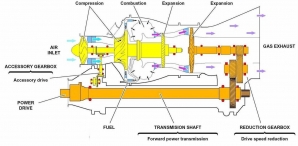CAA will just be a new name for DGCA : Ashok Gajapathi Raju
Monday, 30 November -0001 00:00

Union civil aviation minister Ashok Gajapathi Raju Pusapati believes that security should be effective and that VIPs should not avoid being frisked at airports. In an interview with Mihir Mishra, he said that proposals to set up institutions such as a Civil Aviation Authority or a Civil Aviation Force will just mean cosmetic changes unless rules are simplified. He also spoke about the new aviation policy that he unveiled last week. Edited excerpts:
What needs to be done to revive aviation?
This is a sector which has not seen any growth worth mentioning in the last two years. The fact that we have so many unutilised bilateral entitlements means no thinking had gone into it during allocations. We need to provide regional connectivity as well as allow our carriers to operate international (flights) and utilise unused bilateral entitlements. We probably need hubs in the country so that we can harness these things. Currently, we are giving a free hand to outsiders and restricting our players.
Indian carriers also have limitations in terms of expanding capacity in the international sector.
You have limited them by laws like 5/20. Allow them. Indians are capable people and they have proved this off and on. (Currently Indian carriers need to have been flying for five years and have 20 planes to be eligible for starting overseas operations.)
The civil aviation policy has been criticised for lacking clarity on issues such as airport privatisation.
Action plan of the aviation policy will follow post the consultations. In terms of airports, we need to have a mixture (private, government and management contract) and generate competition among them. Before these airports were privatised, there were only government airports. The quality of airports might have gone up after privation but the costs have also gone up after privation but the costs have also gone up. So, there is a flip side of it.
The new aviation policy talks of introducing best practices at the Directorate General of Civil Aviation (DGCA).
DGCA's basic job is to ensure safety, which should not be compromised. As far as other rules are concerned, it's an evolving process. Why are things not being cleared in a reasonable period of time? Is it not stifling our growth? You see, we should understand that we are only capable of restricting Indians through such policies. The downgrade of the DGCA happened under the earlier government but that has created problems for all our carriers even today. (The US Federal Aviation Administration downgraded India's aviation safety ranking early this year.)
There were plans of replacing DGCA with the Civil Aviation Authority ( CAA). Is that plan on hold?
See, whatever name it's called, it remains the same unless the regulations are simplified. Changing the name does not change anything. What we want is a sense of direction. We would like to have meaningful norms that make sense.
But the current regulator lacks financial autonomy to hire people at higher salaries. Is that the only reason behind DGCA's downgrade?
Lack of full-time flight operations inspectors was a major reason behind the downgrade but there were other reasons too. So you need to address those reasons to tackle these issues.
A buffalo hit a plane at Surat airport. Is security being compromised? It is unacceptable that buffaloes come on to the runway and put lives in jeopardy. The problem is of grass and cattle coming to graze, by breaching the perimeter. I asked the air force chief how they deal with this issue of grass around their airports. He said that they allow people to cut the grass under their supervision. And they cut it themselves near sensitive installations. Why cannot that happen at our airports too?
The policy talks of an expert committee deciding on the future of Air India. Will privatisation be part of the expert committee's mandate?
Yes, the committee's mandate will include whether it is possible to privatise AI in its existing form or not. Today, Air India is in a shape where nobody knows whether it will survive or not.
Our Packages



News & Events
Chennai International Airport completes its first phase of flood-proofing after deluge last year. Is it enough?
Monday, 14 November 2016 05:40
The employees of the Chennai International Airport can’t forget how water engulfed the tarmac on December…Nine flights diverted over Delhi smog
Monday, 07 November 2016 05:49
JAIPUR: Nine flights, including three chartered planes were delayed by 4-5 hours from landing in Delhi…From The Blog

